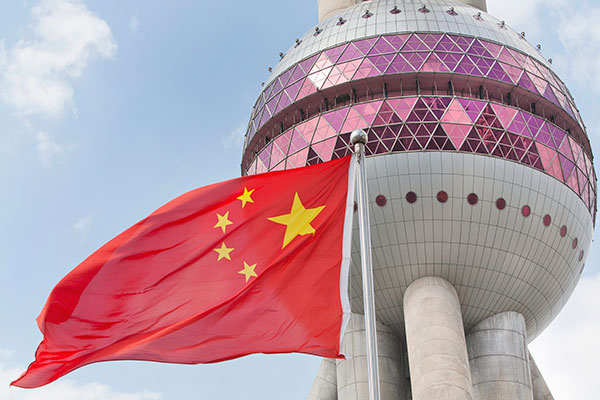Five takeaways for fund and trust investors from first half of 2023
7th July 2023 11:52
by Kyle Caldwell from interactive investor
Kyle Caldwell examines the key trends that played out and lessons fund and trust investors learned in the first six months of the year.

As we pass the halfway point of the year, some of the investment predictions made six months ago have not panned out.
Among those predictions was that the UK stock market would have a good year, with various fund managers pointing out that mid- and small-cap stocks have been oversold on recession concerns. This has not yet materialised, the FTSE 100’s returns are flat year-to-date, while UK funds that specialise in the smaller company arena have on average posted a small loss.
However, in fairness some predictions were on the money. Several professional investors were bullish on Japan, due to the cheap valuations on offer, and its main index – the Nikkei – recently hit a 31-year high.
- Invest with ii: Top Investment Funds | Index Tracker Funds | FTSE Tracker Funds
Below, we look at five key themes in the first half of the year, and how they have impacted fund and investment trust investors.
Big tech makes a comeback
There were some investors who were hoping for a better year for technology shares, given that such companies saw their valuations and share prices re-price in 2022 due to interest rate rises.
The thing that no one predicted was that excitement over artificial intelligence (AI) would take centre stage, and cause share prices to soar.
AI, for those unfamiliar, is technology that can mimic the human mind by solving problems and making decisions. It is predicted to shake up various industries, including healthcare, marketing and transportation.
The theme has been discussed for a number of years, but there’s been a lot of excitement over the past six months or so since Microsoft Corp (NASDAQ:MSFT)-backed ChatGPT, a chatbot that can provide intelligent text and information in seconds, launched at the end of last year.
In response, companies perceived to be the AI winners have seen their share prices bid up, withNvidia (NASDAQ:NVDA) leading the way. The company, which manufactures the computer chips that leading AI systems are developed and implemented on, has seen its share price rise by 195% year-to-date (to 5 July).
As a result, funds and investment trusts with exposure to the AI theme have seen their performances turbocharged.
- Why you may already be profiting from AI
- The funds and investment trusts profiting from AI excitement
- The key trends impacting your investments so far in 2023
In particular, the biggest technology stocks have benefited from excitement over AI’s potential. Along with Nvidia, six other stocks that have seen their share prices boosted are Microsoft, Apple (NASDAQ:AAPL), Amazon (NASDAQ:AMZN), Meta Platforms (NASDAQ:META), Tesla (NASDAQ:TSLA), Alphabet (NASDAQ:GOOGL).
Those seven companies are responsible for most of the S&P 500’s year-to-date returns of 16.3%. For active fund managers, the small number of winners does not bode well. Due to portfolio concentration rules, funds cannot have more than 10% in a single stock. Such rules do not apply to passively managed index funds and exchange-traded funds (ETFs). Therefore, if the biggest tech stocks continue to perform well, the chances are that active fund managers will struggle to beat the S&P 500 and MSCI World indices in 2023.
‘Unloved’ European funds top the sector charts
Fund investors have shied away from European funds over the past couple of years. However, despite the lack of love, funds focusing on the region have been enjoying a purple patch of form. As our recent analysis found, European fund sectors have performed well over four different time periods – six months, one year, three and five years.
One of the main drivers has been the strong performance of Europe’s luxury goods companies. These firms, such as LVMH (EURONEXT:MC), have profited from the re-opening of China, which boosted sales. In addition, luxury goods companies have benefited from the resilience of spending power among wealthy consumers during the cost-of-living crisis.
While there’s huge economic and geopolitical uncertainty, there’s a strong consensus that valuations remain cheap, so investors may not have missed the boat.

Hopes of a China resurgence has not yet materialised
The re-opening of China’s economy led to predictions of a better year for its stock market. However, this has not yet played out, with investor sentiment remaining at low levels.
Gerrit Smit, manager of the Stonehage Fleming Global Best Ideas Equity fund, points out: “Despite the reopening of its economy, investor interest and valuations remain depressed. Tense geopolitical and regulatory issues, along with some economic sanctions, keep investors on the sidelines.”
Smit notes that while Chinese shares are good value, a catalyst is needed to attract new investors. He adds that stronger commodity prices often play the role as a catalyst, but he “does not see strong reasons for imminent turns in commodity prices”.
Towards the end of last year, China’s stock market rallied strongly, and this boosted the performance of China-focused funds and investment trusts, including Super 60-rated Fidelity China Special Situations (LSE:FCSS).
This serves as a reminder to investors that adventurous areas such as China can quickly blow hot and cold. As Dale Nicholls, fund manager of Fidelity China Special Situations, points out in a video interview with interactive investor earlier this year, it is important to take a long-term view.
Nicholls said: “You have to be honest; China is a volatile market. It tends to be fairly driven by headlines, whether it's about economic growth [or] geopolitics. It tends to be in the headlines and the market is volatile as a result. And sentiment can swing significantly, but as you know, I'm very focused on individual companies, their ability to grow earnings to realise and create value over time.”
- Fidelity China Special Situations: two of my favourite shares
- China is volatile but the future for stock investors is bright
Fund managers still backing banks despite some turmoil
No one predicted at the start of 2023 that there would be turmoil in the banking sector, leading to the collapse of a couple of US banks, as well as European lender Credit Suisse running into trouble.
The consensus among investors is that bank issues are confined to just a handful of companies, rather than it being a wider problem that will spread to the entire banking system.
BlackRock Investment Institute, a research team at the world’s largest asset manager, argues that a banking crisis is not unfolding. Instead, it points out that a couple of banks fell into difficulty due to “financial cracks resulting from the fastest interest rate hikes since the early 1980s”.
Nick Brind, fund manager of Polar Capital Global Financials (LSE:PCFT) investment trust, agrees that interest rate hikes were a key factor. He called the recent turmoil a “mini banking crisis” rather than the makings of a systemic bank crisis.
On interactive investor’s On The Money podcast in late March, Brind said: “Ultimately, we know the reasons why those [US] banks were seen as susceptible, but the weakness with all of them was that they had a high percentage of their depositors uninsured.
“This was much higher than their competitors and peers. Consequently, they were susceptible to that loss of confidence. So in that sense, it is not a systemic banking crisis.”
Fund managers who favour banks used the volatility that spread across the sector earlier this year as an opportunity to pick up lower share prices.
Among them was Henry Dixon, fund manager of Super 60-rated Man GLG Income. In a recent video interview, Dixon explained why he added to HSBC Holdings (LSE:HSBA), and gave four reasons why it is not 2008 all over again for the sector.
- Two value stock opportunities, and the bank share I’ve been buying
- The high-yielding shares I am backing to deliver market-beating income
Investment trust discounts higher than historic levels
For investment trust fans, now is one of the best opportunities over the past decade to try and pick up a bargain, as our recent article explains in more detail.
The average equity investment trust is trading on a discount a smidge over 10%, while those that focus on alternative assets are trading on discounts around the 25% mark.
Investment trust discounts have been widening in response to interest rate rises, which has triggered a re-pricing of risk assets, due to the fact that investors can, for the first time in more than a decade, obtain a decent level of income on low-risk assets, namely cash and bonds.
While the widening of discounts may create some opportunities for investors, it also serves as a reminder that investment trusts are more volatile than open-ended funds. As investment trusts have two components – a share price and a net asset value (NAV) – the former tends to fall more severely than the latter when investors are cautious. The NAV is how much the underlying assets held by the investment trust are worth.
In addition, the use of gearing (or borrowing) by trusts magnifies losses as well as gains, causing them to drop more than similarly managed open-ended funds when markets fall but rise more when they go up.
These articles are provided for information purposes only. Occasionally, an opinion about whether to buy or sell a specific investment may be provided by third parties. The content is not intended to be a personal recommendation to buy or sell any financial instrument or product, or to adopt any investment strategy as it is not provided based on an assessment of your investing knowledge and experience, your financial situation or your investment objectives. The value of your investments, and the income derived from them, may go down as well as up. You may not get back all the money that you invest. The investments referred to in this article may not be suitable for all investors, and if in doubt, an investor should seek advice from a qualified investment adviser.
Full performance can be found on the company or index summary page on the interactive investor website. Simply click on the company's or index name highlighted in the article.